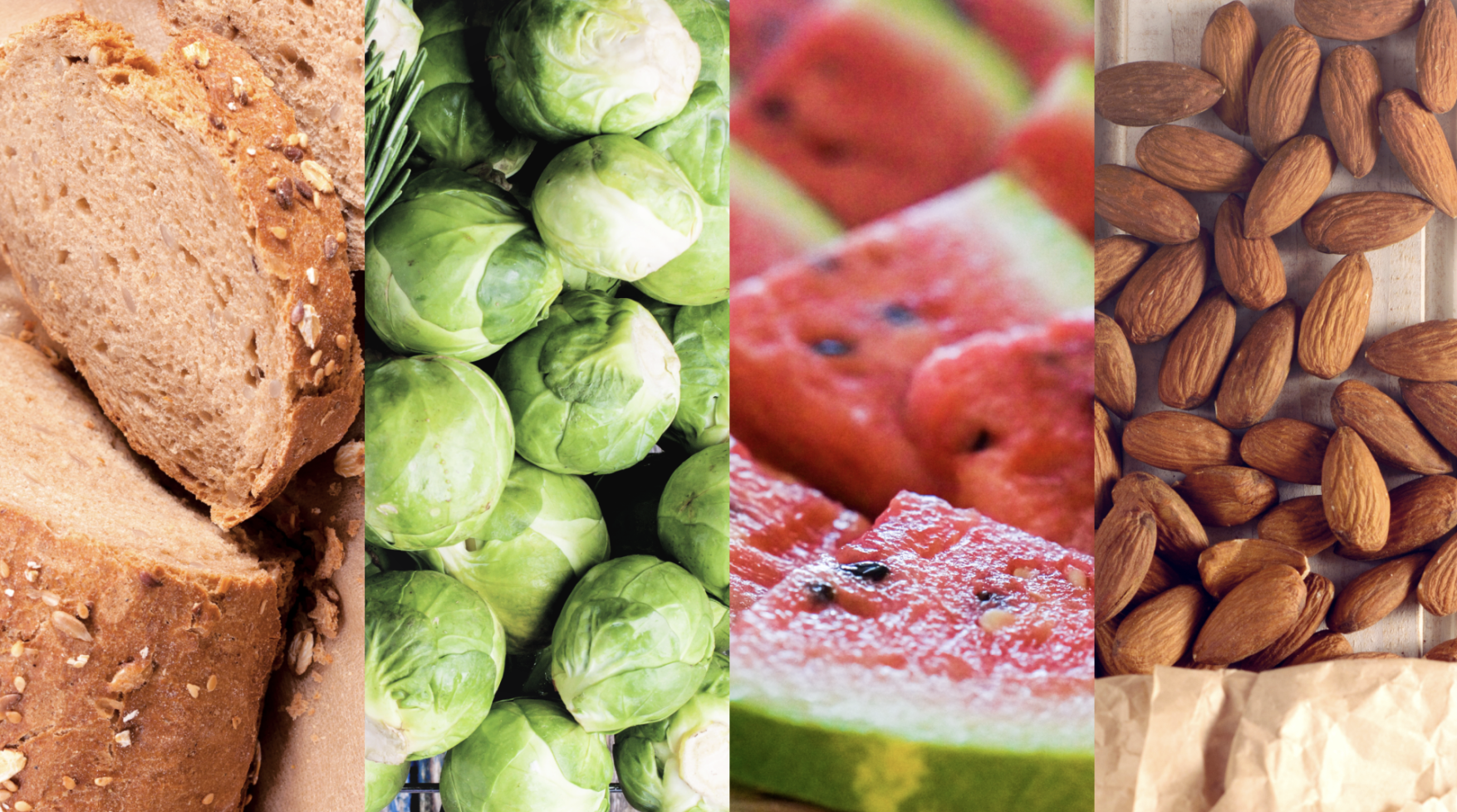Ep. 198: Treating IBS with the Low FODMAP Diet
Listen, Rate & Subscribe*
YouTube // Apple Podcasts // Spotify // Google Podcasts // Stitcher // Amazon Music
High FODMAP foods: wheat, brussels sprouts, watermelon and almonds
Irritable bowel syndrome is one of the world’s most common gastrointestinal disorders, and Canada’s rates are some of the highest. It’s difficult to diagnose, impossible to cure, and can be tough to talk about—but not for today’s guest.
Kate Scarlata, RD, is an expert in IBS and the low FODMAP diet. Here, she joins Leslie Beck, Medcan’s Clinical Director of Food and Nutrition, to give you a comprehensive guide to the many facets of IBS, and how to get the best results using the low FODMAP diet.
LINKS:
Medcan has a Low FODMAP Diet Program for IBS. To learn more about the program or to book your initial assessment, email nutrition@medcan.com or call 647-494-4253.
Check out Kate Scarlata’s website for more IBS and FODMAP diet resources, and see her new book, Mind Your Gut: The Science-based, Whole-body Guide to Living Well with IBS, out March 5
People with irritable bowel syndrome (IBS) have lower bacterial diversity in the intestine, according to new research in Microbiology Spectrum
Read more about the gravity theory in the American Journal of Gastroenterology.
INSIGHTS
03:18 Meet Kate Scarlata and learn why she became an expert in FODMAPS.
05:51 What is irritable bowel syndrome (IBS), exactly?
07:19 What causes IBS?
08:27 Why do some people have more sensitive guts?
10:25 Why can it be tough to diagnose IBS?
12:21 What most people get wrong about IBS
13:34 What are FODMAPS?
15:19 How does the low FODMAP diet work?
18:32 The best way to follow the low FODMAP diet
19:56 How to get more fibre
20:51 What to know before trying the low FODMAP diet
22:24 Should you eat gluten on the low FODMAP diet?
22:57 Kate’s favourite low FODMAP recipe
24:12 Could your microbiome be pathogenic?
26:23 How to know if your problem is not IBS
27:56 Breathwork, relaxation and CBT can help your gut
32:01 What do Kate and Leslie think about probiotic supplements?
32:50 Could IBS be caused by gravity?
35:36 Kate’s new book, Mind Your Gut
*LEGAL
This podcast episode is intended to provide general information about health and wellness only and is not designed, or intended to constitute, or be used as a substitute for, medical advice, treatment or diagnosis. You should always talk to your Medcan health care provider for individual medical advice, diagnosis and treatment, including your specific health and wellness needs.
The podcast is based on the information available at the time of preparation and is only accurate and current as of that date. Source information and recommendations are subject to change based on scientific evidence as it evolves over time. Medcan is not responsible for future changes or updates to the information and recommendations, and assumes no obligation to update based on future developments.
Reference to, or mention of, specific treatments or therapies, does not constitute or imply a recommendation or endorsement. The links provided within the associated document are to assist the reader with the specific information highlighted. Any third-party links are not endorsed by Medcan.

